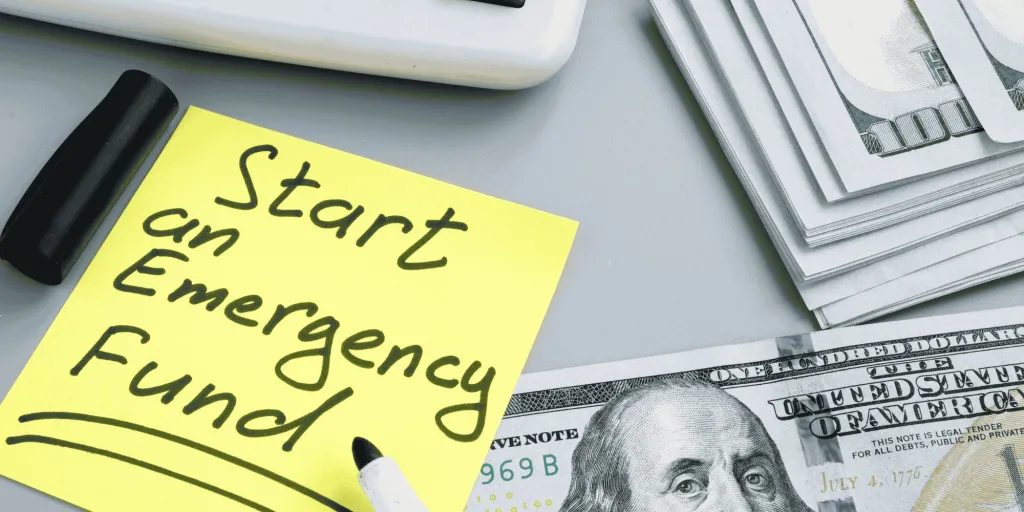
Why Your Emergency Fund Is More Powerful Than Bitcoin
In a world where Bitcoin price predictions dominate headlines and crypto influencers promise life-changing returns, it’s easy to forget the one financial asset that has never lost 80% of its value overnight: your emergency fund.
While Bitcoin continues to captivate investors with its volatility and potential 10x gains, most personal finance experts still rank a fully funded emergency fund as the single most important part of any wealth-building strategy.
Trending Now!!:
Here’s why cash (or cash equivalents) remains far more powerful than the world’s most famous cryptocurrency when life throws curveballs.
1. Bitcoin Can’t Pay Your Bills When You Lose Your Job
Imagine getting laid off tomorrow. Your emergency fund — ideally 3–6 months of living expenses in a high-yield savings account — becomes your lifeline.
Rent, groceries, health insurance, and car payments don’t accept Bitcoin at the checkout (yet). Bitcoin, on the other hand, could be down 40–60% the exact month you need to sell.
In 2022 alone, thousands of crypto investors who treated BTC as their “emergency fund” were forced to sell at the worst possible time — locking in devastating losses during the crypto winter.
2. Zero Volatility = Real Peace of Mind
The average Bitcoin investor checks their portfolio multiple times a day. That’s not financial freedom; that’s stress. A proper emergency fund sits quietly in an FDIC-insured account earning 4–5% APY right now (thanks to elevated interest rates in 2025).
You don’t wake up at 3 a.m. wondering if the price just crashed because of a tweet or a regulatory announcement. Liquidity and stability aren’t sexy, but they let you sleep.
3. Opportunity Cost Works Both Ways
Crypto advocates love pointing out the opportunity cost of “money sitting in a bank.” But they ignore the reverse: the catastrophic cost of being forced to sell Bitcoin during a bear market.
Ask anyone who sold their BTC in March 2020 at $4,000 or November 2022 at $16,000 to cover an emergency. Many still haven’t recovered emotionally — let alone financially — from those decisions.
4. Taxes Treat Them Very Differently
Need $20,000 fast from savings? You take it out tax-free (assuming it’s in a regular high-yield savings account).
Need $20,000 fast from Bitcoin? You trigger capital gains taxes — potentially 20–37% federally, plus state taxes — and you have to wait for the transaction to settle. In a true emergency, that delay and tax hit can be devastating.
5. Emergency Funds Scale With Your Life; Bitcoin Doesn’t Care
Your emergency fund grows as your expenses do. Get a raise? Move to a higher cost-of-living city? Have a child? You simply increase the target amount.
Bitcoin doesn’t adjust to your personal risk. A $50,000 BTC position might feel like security when the price is $150,000, but it becomes a $25,000 position if the market halves — right when you might need it most.
When Bitcoin Actually Makes Sense (After the Basics Are Covered)
None of this means Bitcoin is a bad investment. Once you have:
- No high-interest debt
- A fully funded emergency fund (3–6 months, or 12+ if you’re self-employed)
- Retirement contributions on autopilot
…then allocating a small percentage of your net worth to Bitcoin can be a rational, high-upside bet. But treating Bitcoin as a substitute for an emergency fund is like using a Formula 1 car to pick up groceries. Yes, it’s fast and exciting — until you need reliability.
The Bottom Line
Bitcoin might make you rich someday. An emergency fund keeps you from becoming poor tomorrow.
In an uncertain economy with lingering recession fears, rising healthcare costs, and increasing job instability (especially in tech), the humble emergency fund remains the most powerful financial tool most people never truly appreciate — until they desperately need it.
Build your cash foundation first. Then, and only then, consider riding the Bitcoin rollercoaster with money you can afford to lose.
Because real wealth isn’t just about how high you can go — it’s about never being forced to sell low when life hits hard.


